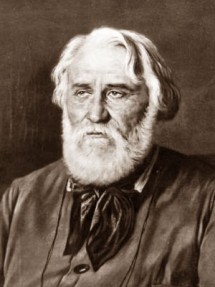The Queen of the Night (Alexander Chee)

Even Ivan (a character in Chee's Queen of the Night) is vapid and bored
“I was inside my lover’s opera, I knew, very near the ending. If the curse was true, and it did seem to rise up around me, as if it would become the very ship that would take me back to America, then I would sing for Aristafeo at least once more, somehow, before losing my voice forever – perhaps regaining my soul if it had ever really been lost. His opera and its fate for me even protecting what had been true so far of us, may be true once again: Aristafeo delivered to me, his steps away from me once again leading back to me in some way neither of us could imagine. If not, I would never see him again. But the only way to know was to go away and see.”
Is this comprehensible to you? No? Is that because you haven’t read Alexander Chee’s novel to this point? No, it’s not. We at TVC have read the entire 561 pages and can confirm that this tortured rambling means nothing to us either. The time-worn story of the beautiful girl from nowhere who becomes a great star can be done poorly (Nights at the Circus by Angela Carter) or well (Fay by Larry Brown). Here it is done very poorly indeed. Here every hackneyed trope of the genre is half-developed and then buried under flabby, meandering prose. Chee tries to invest his tale of the nameless farm girl who becomes a great singer with profundity, mystery and metaphysics at the expense of clarity and meaning. In the attempt to make his story mythic, Chee leaves everything muddied, vague and inchoate. There’s a deal of some sort, a curse of some sort, a secret of some sort, a scheme of some sort, but the reader really has little understanding of what they are. This confusion and frustration means a boring read.
This is typical – “Before I could ever hope to fear that an opera role would control my life if I took it up, I feared this role already controlled me, choosing me before I chose it, as if the opera hid some god of the ancients inside it, determined to make me his plaything. This was no punishment, no price to be paid, this hand was not my mother’s God, nor her ghost, nor did it seem providential – the spiritual mechanisms I knew or feared previously were not engaged here. This was something else altogether, determined and intent on its own satisfactions.”
There is the occasional spark. When our heroine’s friend is being moved on from the brothel at which they both worked she reflects – “But if a circus was a family you had to audition for, a maison close was a family that would sell you as a compliment”. Passages describing the routines of handling the Empress’s outfits, famine in Paris and dress descriptions are sometimes engaging. But these are drowned in endless washes of apparently esoteric import, pages of description of the plots of operas (real and imagined) and heavy-handed overuse of the symbolism of angels, wings, disguises, voicelessness and magic jewels.
To be fair Chee could perhaps write if he tried (or if he stopped trying so hard, perhaps). This almost works -“The wind turned and the rain flensed me then, the cold spray shocking me. More lightning came, more thunder. I watched the bolts fly down and strike Paris and wished to be struck also. To be consumed by the storm. I wanted to run the silver rooftops of the city until I was taken up, and if I was a Vila now, watch as my arms turned to swan’s wings lifting into the sky. Wreaths of lightning for my crowns, and palaces of thunder, the size of mountains, mine to command. This would be how I would leave, and I would never return.”
But for this occasional almost-gem, the reader must wade through hundreds of pages like the following. (NB this next passage is apparently a pivotal moment toward the end of the story but, given its opaqueness, we don’t think a spoiler warning is necessary)-
“I knew the tenor meant for all this to enlist me, somehow. This gift was meant to deny the very real distance between us, a distance he at least knew was there even if he could not admit to it or know it for what it was, and this was what he sought to close now in order to begin whatever next life he believed waited for us. He wanted me to believe I was as he believed I was, his beloved, the recuperating invalid, nearly well, and apparently, if I understood him, a hero in the war, if unwillingly and unknowingly. But he could never close this distance between us because he still did not know why I had been returned to him He was gathering everything in himself to keep me here forever, sure he would succeed even as another plan was already in motion to keep us apart – a plan set in place by the man who had always controlled him.”
By this point, your reviewer at TVC had no idea where these characters were, or what they were on about. Nor did she care. Avoid.
Leave a comment...
While your email address is required to post a comment, it will NOT be published.


3 Comments